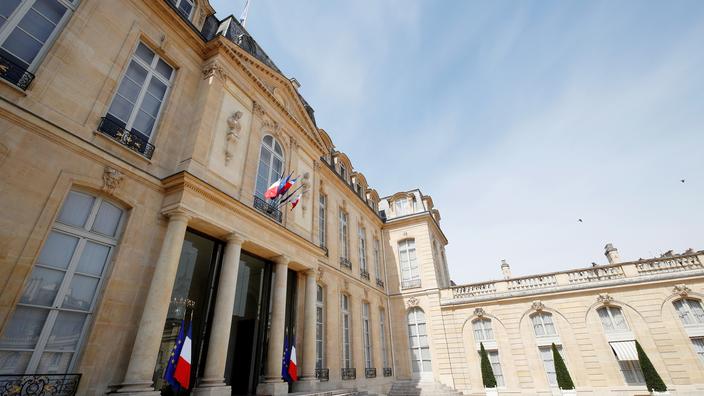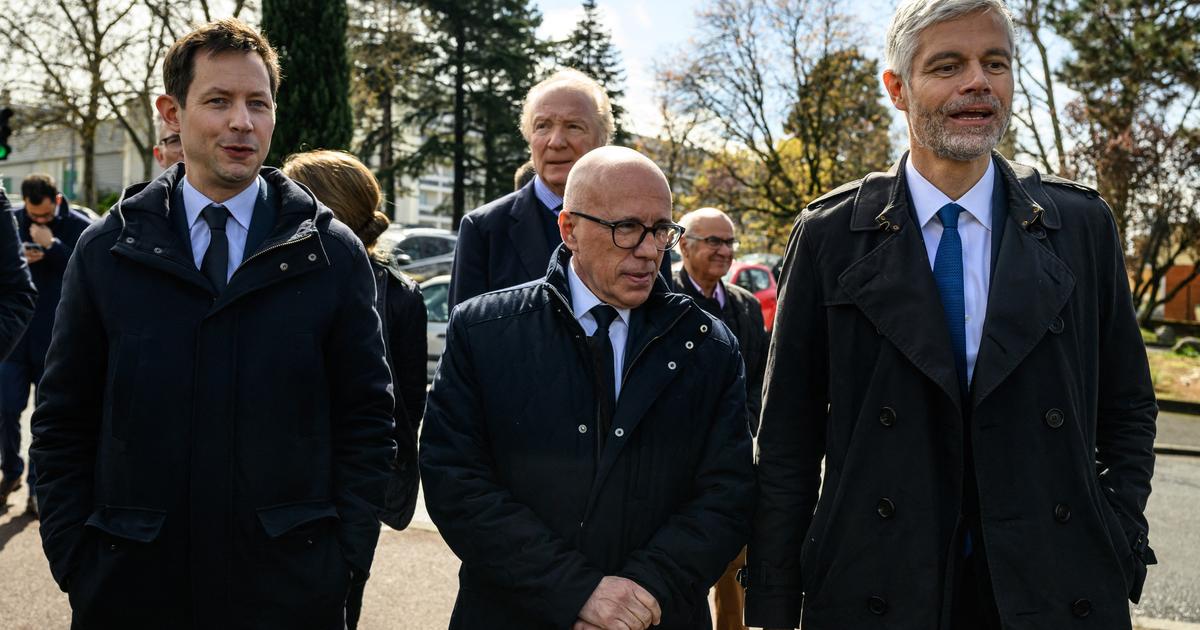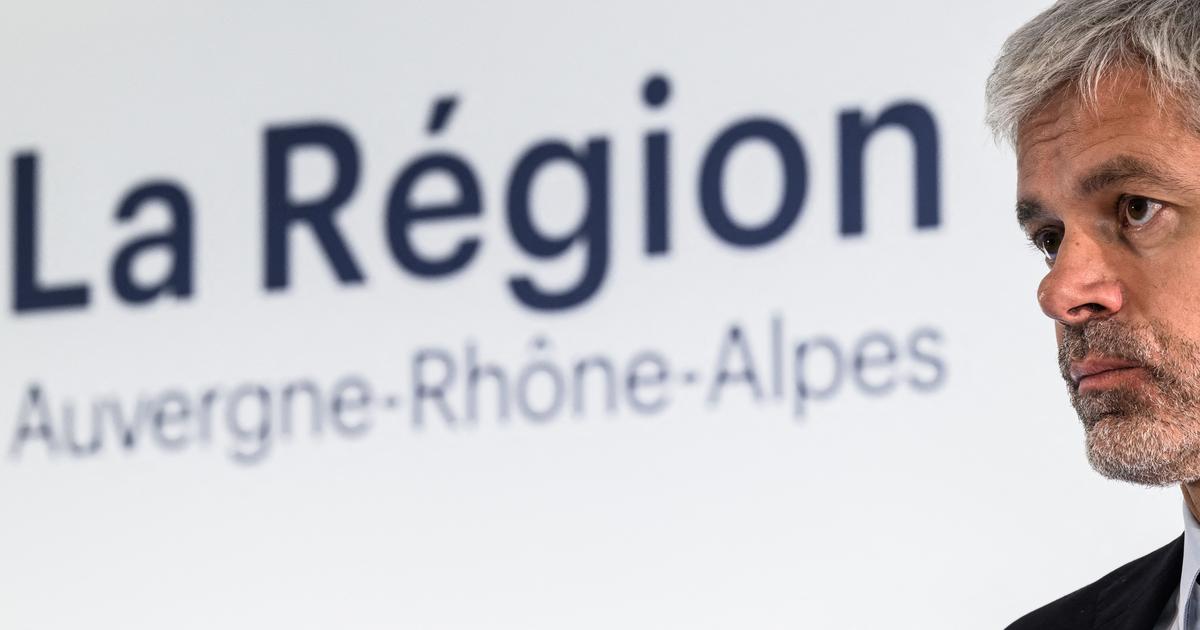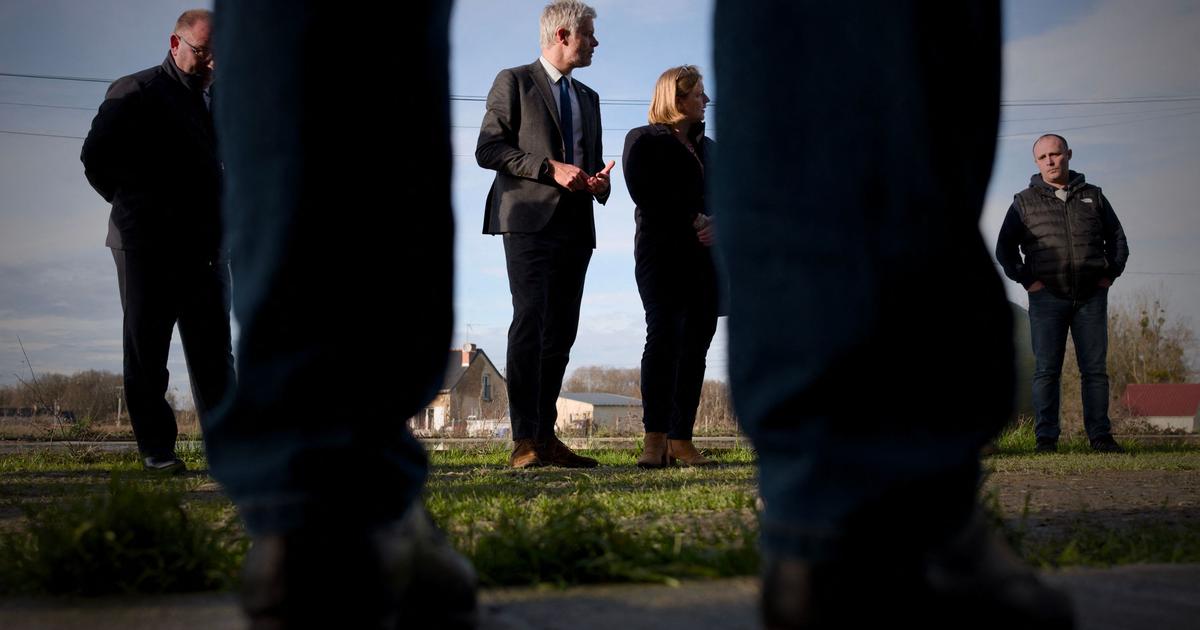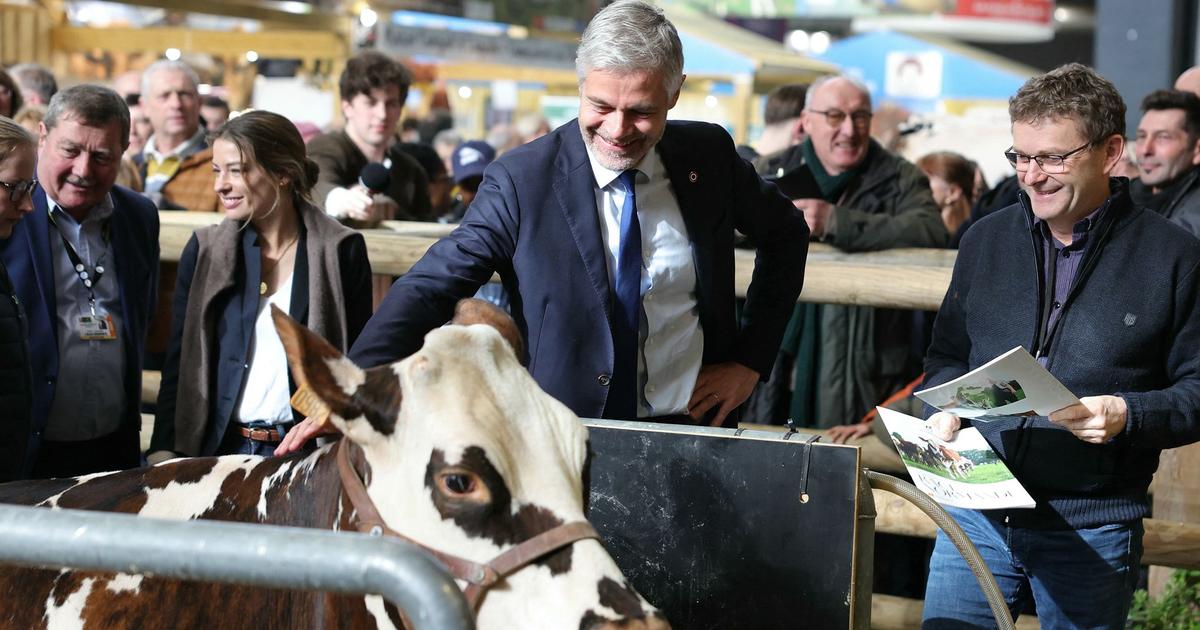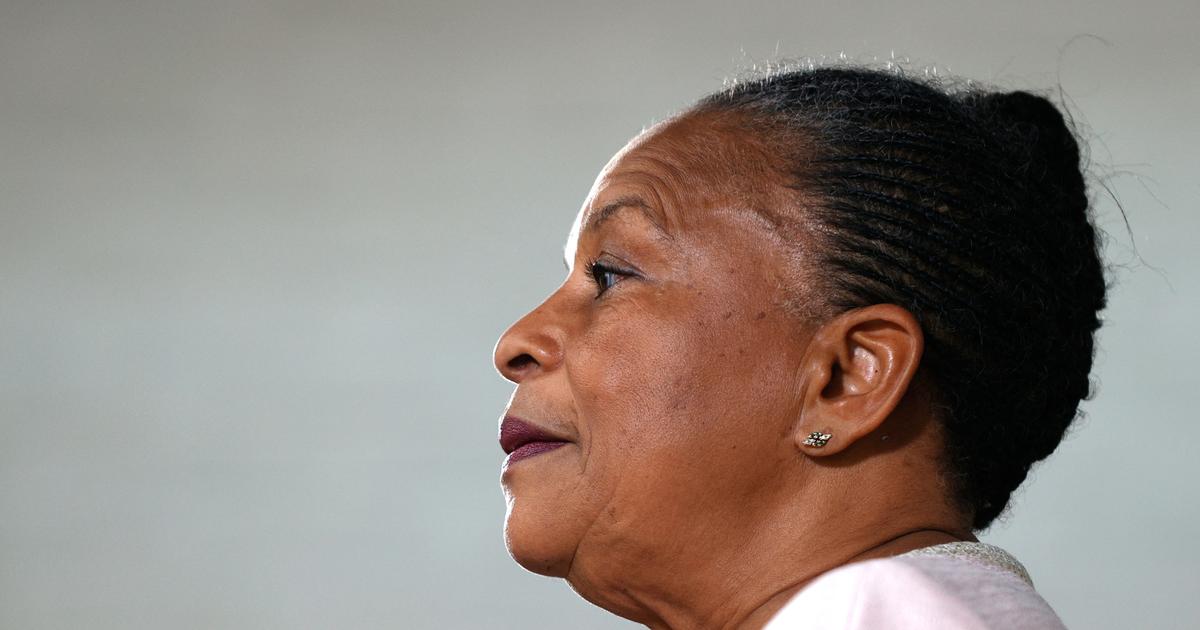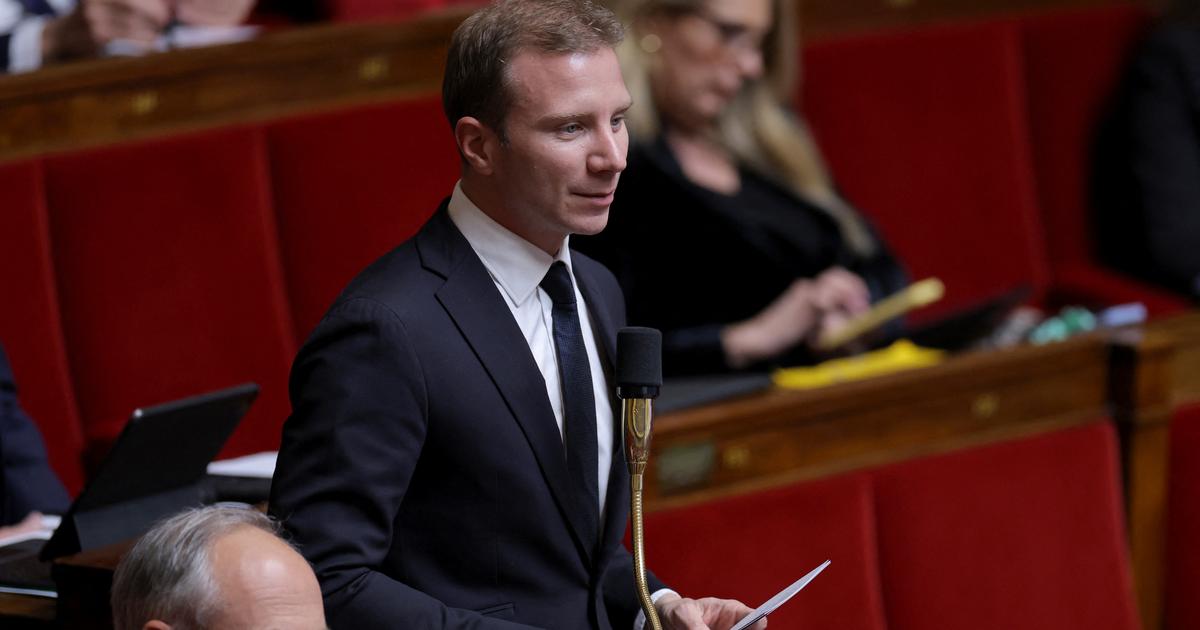They were not at the end of their ambitions. With its share of power struggles and twists and turns, each presidential election sees several of its putative candidates - most of the time not yet declared - throwing in the towel for various reasons. The latest, the president of the Auvergne-Rhône-Alpes region Laurent Wauquiez who announces his non-participation in the primary of the right so as not to add "from division to division". For 30 years, the cases have multiplied: from Jacques Delors in 1994 to François Hollande in 2016, via Jean-Louis Borloo in 2011, the refusals to participate in the supreme election are each time unique of their kind. The upheavals of such a decision obviously vary according to the context and the weight of the personalities on the political spectrum. Overview.
Jacques Delors - 1994
At the end of the year, expectations were high on the left.
The then President of the Republic, François Mitterrand, announced a few months earlier that he would not stand for re-election.
The Socialist Party is looking for a successor for him in the race for the Élysée.
Five months before the presidential election, at the beginning of December, all eyes are on the President of the European Commission Jacques Delors, who is due to leave his post in Brussels in January 1995. A TNS-Sofres poll leaves him even foreseeing victory: 61% for him, 39% for Jacques Chirac.
But a few days later, during the famous show “7 sur 7” on December 11, the former Minister of the Economy and Finance abandoned the race for the Élysée Palace. “
I don't want to be a presidential candidate. It was not an easy decision to make (...). I will turn 70
,
”
explains Jacques Delors. And deplores "
the absence of a majority to lead
" its policy would not allow "
to implement
" its solutions. "
I'll probably criticized for this unusual behavior in French politics
"
,
he concluded. A few years later, in 2016, Jacques Delors will return to this episode in a book
The man who did not want to be king:
“
It was frankly renouncing politics (...).
it is to give up doing something useful.
"
Valéry Giscard D'Estaing - 1995
Two seven years after his defeat in 1981, the former centrist president hesitates to go. Jacques Chirac's second failure in 1988 led him to try to lead the opposition. With the arrival of Édouard Balladur in Matignon in 1993, Valéry Giscard d'Estaing found himself competing on his center-right electoral base, between the former UDF and RPR. Until the end of 1994, the former head of state, tested in opinion polls, fluctuated between 5 and 10% of the vote. This forced him to give up appearing on March 7, 1995 on TF1. If he affirms "to
like the electoral campaigns, their rustle, the thousands of occasions of meetings, the enthusiasm which raises you when the hope of winning begins to grow
", he explains that "
the themes in which (he) believes do not meet with echoes in French public opinion.
"
Jean-Louis Borloo - 2011
In the summer of 2010, the political world was buzzing with an upcoming reshuffle. To replace François Fillon, a name is circulating: Jean-Louis Borloo, Minister of Ecology. Despite negotiations for several weeks, Matignon finally did not change tenants in November 2010. The one who was then president of the Radical Party left the government. And tries to build throughout 2011 a grouping of centrist parties, which could lead to a candidacy for the presidential election. But the lack of support within the Sarkozy centrists and the little political space at its disposal led it not to launch at the beginning of October. "
The times are troubled enough not to add confusion to the confusion
"
,
he declares on TF1.
The strength of the center is "
not sufficient to carry a candidacy, not of testimony, but to be present in the second round of the presidential election.
"
Nicolas Hulot - 2016
A few months after refusing to enter the government of François Hollande, the entourage of the famous TV host suggests that he could run in the next presidential election.
But Nicolas Hulot is long in coming: in this spring of 2016, he is still marked by his failure in the Green primary in 2011 against Eva Joly, and carefully scrutinizes the political landscape animated by a fractured left and a right which is organizing its primary. in the fall of 2016. For its part, EELV is also preparing an internal battle: Cécile Duflot is pushing for Nicolas Hulot to make up his mind.
At the beginning of July, he announced that he would not be a candidate.
"
Aware of the expectation and the hope that some have placed in me, I could not dismiss this hypothesis out of hand
," says Nicolas Hulot.
And adds that he does not wish "to
feed any longer an expectation that (he) could not satisfy."
Criticizing "
the lack of a political response
"
,
the ecologist will take his first governmental steps with Emmanuel Macron in 2017.
François Hollande - 2016
This is probably the most disturbing case of recent years.
Even of the Fifth Republic.
Marked by record unpopularity, a fractured majority and the growing hypothesis of being eliminated in the first round of the presidential election, François Hollande found himself up against the wall in the summer of 2016. So few in the political class doubt his willingness to embark on the race, some are starting to speculate.
A primary on the left seems to be emerging: will a sitting president submit to such a political exercise?
Three events will speed things up.
First, the release of the book
A President Shouldn't Say That,
in October 2016, book of interviews in which François Hollande criticizes the political class all-out and takes controversial positions on Islam or justice. A book with strong repercussions, especially in the presidential majority, and which once again desecrates the image of the President of the Republic. Then there is the push of Emmanuel Macron who structures his young party, En Marche, while preparing his own candidacy for the presidential election. François Hollande refuses to believe in the betrayal of his former adviser. And yet, in November 2016, the former Minister of the Economy launched. Finally, the last step embodied by Manuel Valls. The then Prime Minister accelerates at the end of November in the JDD, affirming that he is ready to run if François Hollande does not go.
On December 1, 2016, the President of the Republic announced his decision: “
I am aware of the risks that an approach, mine, which would not bring together (...). Also, I decided not to be a candidate for the presidential election, therefore for the renewal of my mandate.
"

